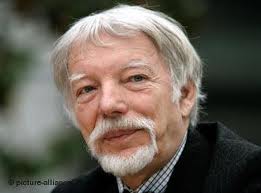I don’t study ethics much because there is already such a high bar in reaching a minimal level of human decency, so slicing and dicing moral principles feels like buying a fuzzy sweater for a dead dog. And at any rate I am suspicious of any moral calculus.
I pay more attention to the question of responsibility and guilt–not in the sense of what responsibility should be borne and what guilt should one feel, but what tendencies people have and what tendencies have good and bad effects. That is, regardless of whether someone should feel guilt or not, what mechanisms of guilt and responsibility tend to cause better behavior in the future, without psychological scarring or deep misery?
I have no quick answer to that question. And I worry about the quick applications of those sorts of principles to socio-political problems. I have grave doubts over such things as South Africa’s Truth and Reconciliation program, which to varying extents coerced forgiveness from victims: “The witness’s refusal to forgive or to support the granting of amnesty thus is met with attempts to convince her that her attitude will harm her country’s rebuilding efforts.” It’s possible it was all for the best, but who can sit easily with this sort of institutionalized ethics?
There is a passage in Jan Assmann’s Religion and Cultural Memory collection that captures this for me as well as anything. Assmann alludes to how every memorial for an atrocity also can serve the dual function of distracting others from atrocities their peoples may have committed–a form of scapegoating.
Auschwitz, the darkest chapter of German history, has long since assumed the dimensions of a “normative past” that must not and cannot be allowed to fall into oblivion under any circumstances because its importance goes well beyond the memories of victims and perpetrators; it has become an instance of unviersalized bonding memory and the founding element of a global secular religion that is concerned with democracy and human dignity. Its commandment is “never again, Auschwitz,” and this means not just that there should never again be victims of a German fascism, but that we–and this “we” includes humanity–wish never again to be perpetrators, fellow travelers, or electors of a regime that tramples on human dignity. If we wish to procure world-wide recognition for these principles, we would do well not to repress what we mean by “Amalek,” that is to say, the essence of all that we must reject if we are to secure a better future. Instead we must publicly take responsibility for it, in solidarity with those sections of mankind for whom Auschwitz has become the normative memory of a guilt incurred.
In such acts of recognition of the suffering caused to others through no fault of theirs we can discern the outlines of a universal form of bonding memory that is committed to certain fundamental norms of human dignity.
Jan Assmann, “What is ‘Cultural Memory’?”
The point here is that by identifying the Germans as those who will bear the normative memory of guilt, a non-German forgets whichever tendencies lay dormant within him- or herself that could permit future atrocities were the circumstances right. The non-German is inoculated against critical and humbling doubts about one’s own self and culture. Assmann asks instead for solidarity with those who brand themselves with the collective guilt of the sins of their forefathers–rather than moral superiority. (Chakira has some related thoughts on Shaul Magid.) In other words, “Never again” is facile if not applied as inclusively as possible.
In drastic contrast, there is the hypostatizing moral certitude of Levinas, who exempts an entire nation from such doubts:
Chaim Grinberg brought together articles by several Israeli authors on the relation between religion and State. Reading these texts, which are above all eye witness accounts, one is struck by the ease with which the move from religion to ethics is carried out. We do not get the impression of a morality being added to the dogma, but of a ‘dogma’ that is morality itself…Not that belief in God incites one to justice–it is the institution of that justice.
Justice as the raison d’etre of the State: that is religion. It presupposes the high science of justice. The State of Israel will be religious because of the intelligence of its great books which it is not free to forget. It will be religious through the very action that establishes it as a State. It will be religious or it will not be at all.
Emmanuel Levinas, Difficult Freedom (1963)
This is precisely the attitude Assmann warns against. Identifying justice, religion, and one’s state is tantamount to exempting that state from any such solidarity and any possible collective guilt. Regardless of one’s feelings about Israel (swap any other country into the passage if you wish), this is dangerous bunk.
